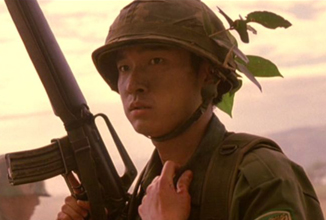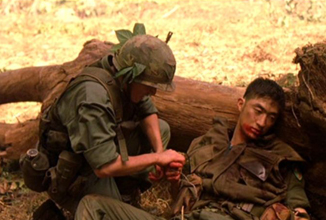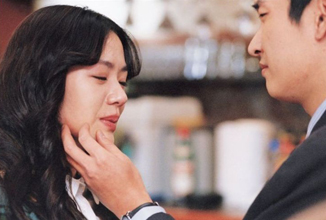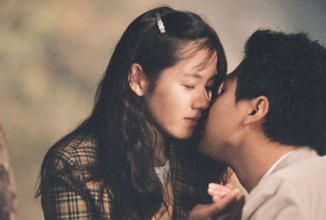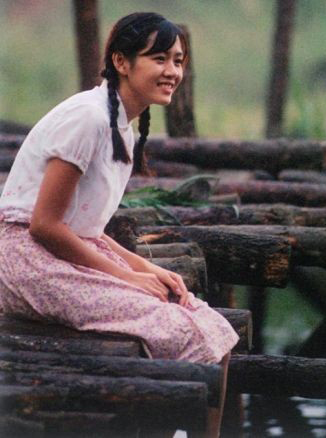"Romantic breeze? That’s so cliché… I guess I’ll look at it as a classic."
While tidying away books in her home, student Ji-hae (Son Ye-jin) finds a box belonging to her late mother, Joo-hee (also played by Son Ye-jin), which contains some old love letters and a diary. On opening it she discovers, to her surprise, that while some of the letters are from her father, some seem to come from a man she has never heard of. Intrigued by who the man is, and wanting to know more about his relationship with her mother, Ji-hae starts to read the letters - bringing the past back to life in her imagination as she gradually learns the story of her mother's first love. Back in the present, Ji-hae has a seemingly unrequited love of her own and, as the parallel love stories of mother and daughter unfold, separated by time, she begins to realise that her life is linked to her mother's in more ways than she could ever have imagined…
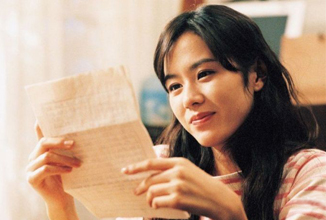 |
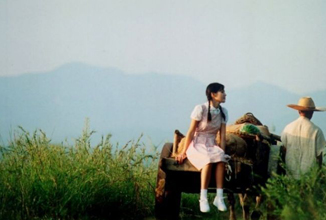 |
Review:
The Classic was Kwak Jae-young's follow-up to the incredible My Sassy Girl (to date, the best selling Korean DVD of all time) and, as such, it would be almost impossible for it to live up to the expectations imposed by its lineage. However, even taking that into consideration, there are problems present - the largest being that The Classic really doesn't know what type of film it's trying to be. Starting out as a sweet and endearing story of two parallel romances, split by a generation, it quickly switches tone to that of a tear-inducing melodrama and, via forays into Vietnam war-epic territory, concludes as a story of fate and meant-to-be love, with lashings of social commentary thrown in for good measure. Though each of these genre sections is well made and works in its own right, the transitions between them feel somewhat contrived, with some story elements clearly designed and inserted with the sole purpose of eliciting the requisite emotional response from the audience. Those emotions are indeed evoked, but mainly from empathy for the well-drawn (and acted) characters of Ji-hae, Joo-hee and Joon-ha, rather than from the plot.
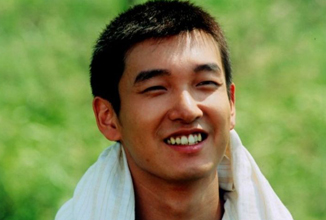 |
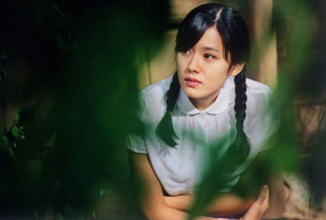 |
Not only that, but the film repeatedly uses ideas and segments which exactly mirror scenes from My Sassy Girl (for example, two lovers taking refuge from the rain by using a raincoat as a makeshift umbrella; the use of Pachelbel's Canon in D extensively in the soundtracks; the female lead in each film playing a piano recital in front of an audience, which includes the object of her affections (once again, Pachelbel's Canon in D, in My Sassy Girl, and Beethoven's Piano Sonata 8, movement 2, in The Classic) and; a scene based on a section of the famous short story "The Shower" (original title Sonagi) by Hwang Sun-won, which My Sassy Girl parodies so wonderfully). Though these are (or were) great scenes, copying them to the extent seen here is simply lazy and, rather than sparking positive associations with Kwak Jae-young's previous film, they only serve to ensure that The Classic is kept firmly in My Sassy Girl's shadow.
Plot-wise, the stories of the romances of mother and daughter are well told, however - of the two - Joo-hee's 1960's romance with Joon-ha has a far greater depth and resonance, and that somewhat diminishes the effectiveness of the current-day tale. In spite of this, both stories are still strong enough to hold audience attention throughout, but it is unfortunate that overt flags to forthcoming occurrences regularly appear, resulting in viewers being aware of almost every plot twist long before it unfolds in the story.
The film's saving grace, however, is Son Ye-jin's wonderful performance as both Ji-hae and Joo-hee. She utterly owns every scene in which she appears and single-handedly raises the level of proceedings from mildly entertaining to strongly engaging - more on this in the "Cast" section of the review.
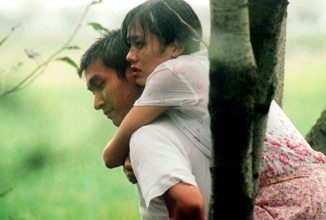 |
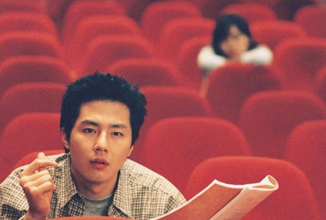 |
The themes and social commentary - comparing and contrasting 1968 and 2003, with regard to social etiquette, class structure and women's place in Korean society - are expertly discussed, with the parallel stories of Ji-hae and her mother (similar in many respects but separated by thirty years) each being shown to be influenced, and affected, by the social constraints and etiquette imposed by the relevant time period. These social statements are clearly referenced with specific regard to Korea (though they also hold true for many other cultures), and effectively show that hopes and dreams which were virtually unattainable for previous Korean generations, are finally being realised and achieved by those generations' children.
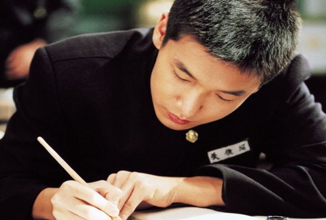 |
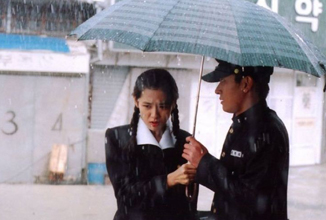 |
Kwak Jae-young directs The Classic with confidence and aplomb (from his choice of framing, movement and pacing, to his ability to get the best out of the majority of his cast) while, cinematically, the film can only be described as utterly beautiful, easily standing amongst the director's other work - both previous and subsequent. Great care and attention is given to both the overall look of the film and the accuracy with which each of the time periods is portrayed; set pieces are exquisite (aptly conveying a real feeling of love and romance in idyllic surroundings) and there is a noticeable, and tangible, dream-like quality present as the characters' love for each other grows. Special note should also be made of the romantic scenes involving fireflies, in both time periods, which are simply stunning in every respect.
Extensive handheld camerawork and fast-paced cuts between medium length shots and close-ups, in the Vietnam War section, conversely really add a sense of realism to the scenes and, combined with action sequences of which Hollywood would be proud, perfectly show the brutality and harshness of war.
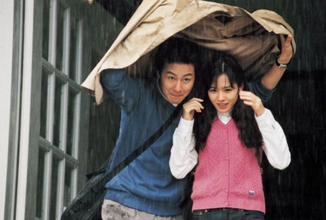 |
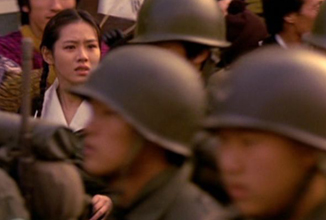 |
Cast:
Following her accomplished debut in Chihwaseon (2002), The Classic was only Son Ye-jin's second major acting role and, as such, her astounding, award-winning performance is even more remarkable - (Son Ye-jin won the following awards for The Classic: 2003 - 24th Blue Dragon Film Awards - Popular Star; 2003 - 39th Baeksang Arts Awards - Best New Actress; 2003 - Dae Jong Awards - Best New Actress; 2004 - 9th Moscow International Love Movie Awards - Best Couple).
Her portrayals of both Ji-hae and Joo-hee are faultless and, regardless of whether she is required to express her characters' emotions outwardly, or with the merest glance, she gives a depth to each portrayal which truly stands out. With roles such as these, which could so easily be melodramatically overplayed, she deftly shows that she is astoundingly talented, and not once does it ever appear that she is acting. Her performances are, in fact, so utterly believable that the vast majority of viewer empathy is generated solely by her.
Cho Seung-woo (as Joon-ha) also gives an impassioned performance and there is noticeable chemistry between his character and that of Joo-hee. With regard to the role of Sang-min (the object of Ji-hae's affections), played by Cho In-sung, his is the only character portrayal that could really be criticised to any degree. Admittedly, the relationship between Sang-min and Ji-hae is detailed to a lesser extent than that of Joo-hee and Joon-ha but, even so, Cho In-sung's performance is, at best, lack-lustre and it appears that he is doing no more than going through the motions. As a result, Son Ye-jin is required to do even more to make us believe Ji-hae's feelings for Sang-min and it is only thanks to her incredible acting ability that she succeeds to do so.
Summary:
Despite the various problems, contrivances and plot issues within The Classic, Kwak Jae-young's skill as a director (combined with Son Ye-jin's unmissable performance) results in a beautiful film which is still a very enjoyable viewing experience and, when all is said and done, the film manages to be better as a whole than the sum of its component parts should allow. It is just a pity that a film as gorgeous as this isn't as truly memorable as it could, so easily, have been.
Cast (Actor – Character):
Son Ye-jin - Ji-hae and Joo-hee
Cho Seung-woo - Joon-ha
Cho In-sung - Sang-Min
Lee Ki-woo - Tae-su
Lee Sang-in - Su-kyeong
Lim Ye-jin - Shopkeeper
Yang Hyeon-tae - Seok-woo
DVD
The DVD edition reviewed here is the Korean (Region 3) 2-Disc Special Edition which has as an anamorphic transfer with an aspect ratio of 2.35:1. Image quality is exemplary, especially considering the age of the film, with an impressively clean print being used for the transfer. There are no image artifacts present and the picture really does justice to the stunning visuals. The original Korean language soundtrack is provided as a choice of Dolby Digital 5.1 and DTS 5.1, and each is clear and expansive. Excellent subtitles are provided throughout the main feature, but English speaking viewers should note that there are no subtitles available on any of the extras.
Extras are, as is common with Region 3 Korean DVD releases, extensive. Details can be found below:
DVD
Details:
• Director: Kwak Jae-young
• Format: NTSC,
Anamorphic, Widescreen, Subtitled
• Language: Korean
•
Subtitles: English, Korean
•
Sound: Dolby Digital 5.1, DTS 5.1
• Region: Region 3
• Aspect Ratio:
2.35:1
• Number of discs: 2
• Classification: 12
• Studio:
Duckson Media (Korea)
• Run Time: 128 minutes (approx.)
DVD Special Features:
Disc 1:
- Audio Commentary By Director
- Audio Commentary By Cast
Disc 2:
- Cast & Crew Interview
- Outtakes of The Classic
- Deleted Scenes
- Continuity
- Stills Gallery
- Art Work
- Letters & Diaries
- Theatrical Trailer
- Music Video
|












